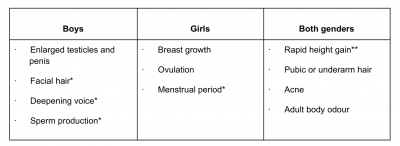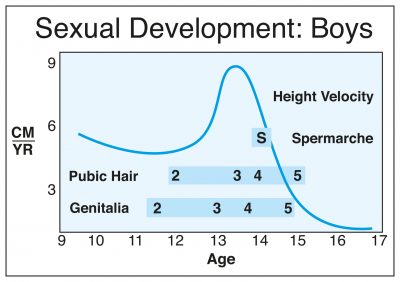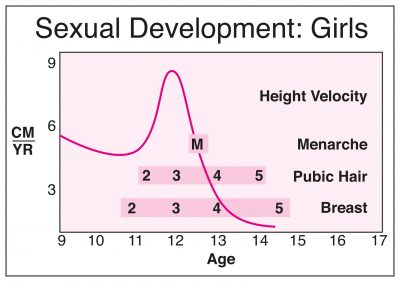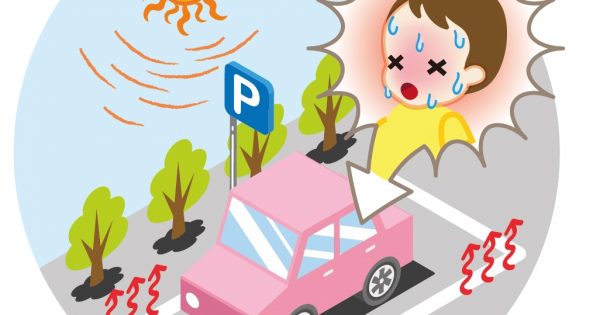There is a general perception that children are entering puberty earlier compared to few decades ago. Further research in Malaysia is required to confirm the notion, but precocious or early puberty is an actual rare condition in children.
Precocious puberty is not simply when a child experiences puberty slightly earlier than their peers. It is a medical condition when a child’s body begins changing into an adult’s body too soon, specifically before the age of 8 years for girls and before the age of 9 years for boys.
These transformations include changes in body shape and size, rapid bone and muscle growth, and development of sexual and reproductive functions. In general, the prevalence is higher in girls than boys. For example, a study on central precocious puberty in Denmark found a mean incidence of 9.2 per 10,000 in girls compared to 0.9 per 10,000 in boys.
Detecting the signs
The signs of precocious puberty and normal puberty are similar, except for the earlier timing.

*Late stage of puberty
**Rapid height gain is an early change seen in girls, but not in boys. In boys, rapid height gain signifies later part/advanced pubertal progression.


Causes for concern
Puberty typically starts when the pituitary gland at the base of the brain releases hormones called gonadotropins, which in turn stimulate the ovaries (in girls) or testicles (in boys) to produce sex hormones (e.g. oestrogen or testosterone) that trigger the physical changes seen during puberty.
There are 2 types of precocious puberty depending on the possible causes:
- Central precocious puberty: This type of precocious puberty is more common. The process is similar to normal puberty. The only difference is it starts earlier. In girls, often, there’s no underlying medical condition or identifiable cause. However, in boys up to 38% may be due to defects or physical trauma of the brain/spinal cord caused by a tumour or injury and also rare genetic diseases.
- Peripheral precocious puberty: It is less common and does not involve the early release of gonadotropins. It is caused by the release of sex hormones due to problems such as tumours/growths (on the ovaries, testicles or adrenal glands) and rare genetic diseases. Another possibility is over-exposure to sex hormones in medical or even aesthetic products, e.g. creams, ointments, pills and essential oils (e.g. lavender oil and tea tree oil).
Adverse outcomes
Precocious puberty can cause physical and emotional issues in children if left untreated:
- Short final adult height: Children experiencing precocious puberty will grow quicker and become taller than their peers. However, since they mature earlier, they will also stop growing earlier. Hence, as adults, they may end up being shorter than average.
- Social problems: Their peers may treat them differently due to the changes. They may feel awkward, confused or stressed. Hence, this could affect their self-esteem or increase the risk of depression or substance abuse.
- Behaviour problems: They may become more moody, irritable or aggressive due to the hormones. They may also develop an early sex drive inappropriate for their age.
What can be done?
If your child is showing signs of precocious puberty, please consult a paediatrician or paediatric endocrinologist. Your child’s doctor may advise these treatments:
- GnRH analogue therapy: A monthly or 3-monthly injection of a medication to halt pubertal progression. It has to be taken until they reach the normal age of puberty.
- Histrelin implant: An implant on the inside of the upper arm which also delays development. It lasts for a year, so it may be more convenient compared to monthly shots. However, this is not commonly used in children.
- Treatment for the underlying cause: Treating the condition usually will also stop precocious puberty, e.g. by surgically removing the tumour that’s causing the release of hormones.
For girls with early puberty, i.e. breast development between 8-9 years old, please bring them for a medical check-up. If the puberty is not rapidly progressing, explain to them what is happening to their body and assure them that everything will be alright. Help them by promoting their self-esteem and positive body image.
It is always difficult to determine precocious puberty in boys. More often than not, they were diagnosed late, i.e. when there is deepening of voice. Be mindful that rapid height gain, presence of pubic hair/acne or deepening of voice occur at the late stage of puberty in boys. Boys with rapid height gain at a much earlier age than their peers should get a medical check-up by their paediatrician/paediatric endocrinologist. Their doctors must determine the testicular size based on the standard Prader orchidometer.
Puberty is part of growing up, but precocious puberty may not be what you expect your child to go through. If you see signs of precocious puberty in your child, please bring them to see a doctor to determine the real problem. Don’t worry! With the right treatment, most children with precocious puberty will do fine, medically, psychologically, and socially.







Comments